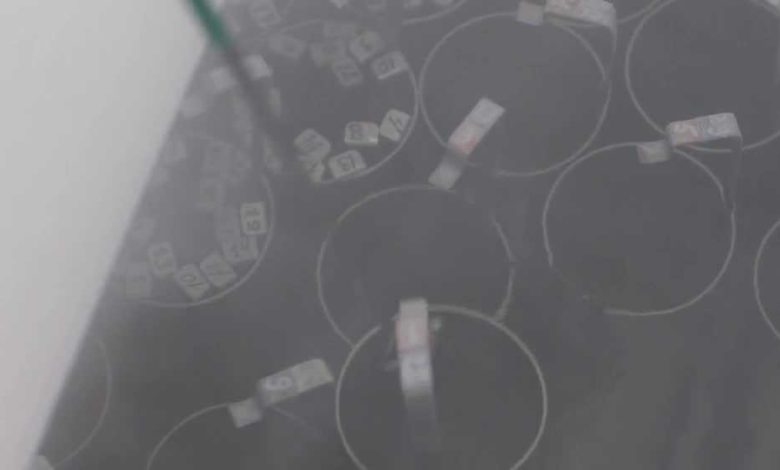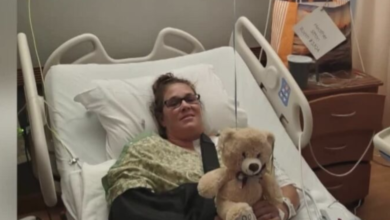

Since the start of the pandemic, Adjoa Anyane Yeboa's day-to-day schedule has changed."I was able to find more flexibility in my work life in order to take time and finally take time and do something for me," Yeboa said. More work from home means more time to make plans for the future. For Yeboa, who's in her mid-30s, that means family planning."I've been thinking about egg freezing for a long time and only recently I finally decided to take the leap," Yeboa said. Fertility experts say egg freezing has spiked about 20% during the pandemic."I see so many people settling for their partners or rushing to find somebody and to get engaged and get married because they're beating a clock and I didn't want to have to do that," Yeboa said. " I wanted to do things on my timeline."Dr. Rachel Ashby, a reproductive endocrinologist and fertility specialist at Brigham and Women's Hospital in Boston says there are key COVID-19 reasons more women are making the personal decision to freeze their eggs, including how isolation impacted relationships. "The pandemic has delayed a lot of social interaction, so for people who were dating and planning on dating and looking for partners," Ashby said. "There were a lot of patients I've seen that were in a long-term relationship with this idea that this person I plan to build a family around, and the relationship did not survive."There's been more time to think and for many, to turn to science.The egg freezing process takes about two weeks and involves daily injections of FSH hormones to stimulate the ovaries to grow as many eggs as possible. Then, the eggs are retrieved and preserved in a lab in subzero temperatures to be used at a later date."The biggest thing for women to know is that travel is not easily accomplished because you're coming in every few days, usually at 6:30 to 7 a.m. for bloodwork or ultrasound," Ashby said. "Over that two-week time frame, the follicles go from very small to mature."Ashby says women who are thinking about doing this should focus on getting all the information first, to see if it makes sense for them.The process can run anywhere from $5,000 to $10,000 to freeze your eggs. Ashby says more and more companies are including egg freezing in their health insurance but you should make sure your coverage also includes medication. She cautions there are no guarantees, so potential patients should ask a lot of questions about fertility and see what's best for them.
Since the start of the pandemic, Adjoa Anyane Yeboa's day-to-day schedule has changed.
"I was able to find more flexibility in my work life in order to take time and finally take time and do something for me," Yeboa said.
More work from home means more time to make plans for the future. For Yeboa, who's in her mid-30s, that means family planning.
"I've been thinking about egg freezing for a long time and only recently I finally decided to take the leap," Yeboa said.
Fertility experts say egg freezing has spiked about 20% during the pandemic.
"I see so many people settling for their partners or rushing to find somebody and to get engaged and get married because they're beating a clock and I didn't want to have to do that," Yeboa said. " I wanted to do things on my timeline."
Dr. Rachel Ashby, a reproductive endocrinologist and fertility specialist at Brigham and Women's Hospital in Boston says there are key COVID-19 reasons more women are making the personal decision to freeze their eggs, including how isolation impacted relationships.
"The pandemic has delayed a lot of social interaction, so for people who were dating and planning on dating and looking for partners," Ashby said. "There were a lot of patients I've seen that were in a long-term relationship with this idea that this person I plan to build a family around, and the relationship did not survive."
There's been more time to think and for many, to turn to science.
The egg freezing process takes about two weeks and involves daily injections of FSH hormones to stimulate the ovaries to grow as many eggs as possible.
Then, the eggs are retrieved and preserved in a lab in subzero temperatures to be used at a later date.
"The biggest thing for women to know is that travel is not easily accomplished because you're coming in every few days, usually at 6:30 to 7 a.m. for bloodwork or ultrasound," Ashby said. "Over that two-week time frame, the follicles go from very small to mature."
Ashby says women who are thinking about doing this should focus on getting all the information first, to see if it makes sense for them.
The process can run anywhere from $5,000 to $10,000 to freeze your eggs.
Ashby says more and more companies are including egg freezing in their health insurance but you should make sure your coverage also includes medication.
She cautions there are no guarantees, so potential patients should ask a lot of questions about fertility and see what's best for them.
Source link








